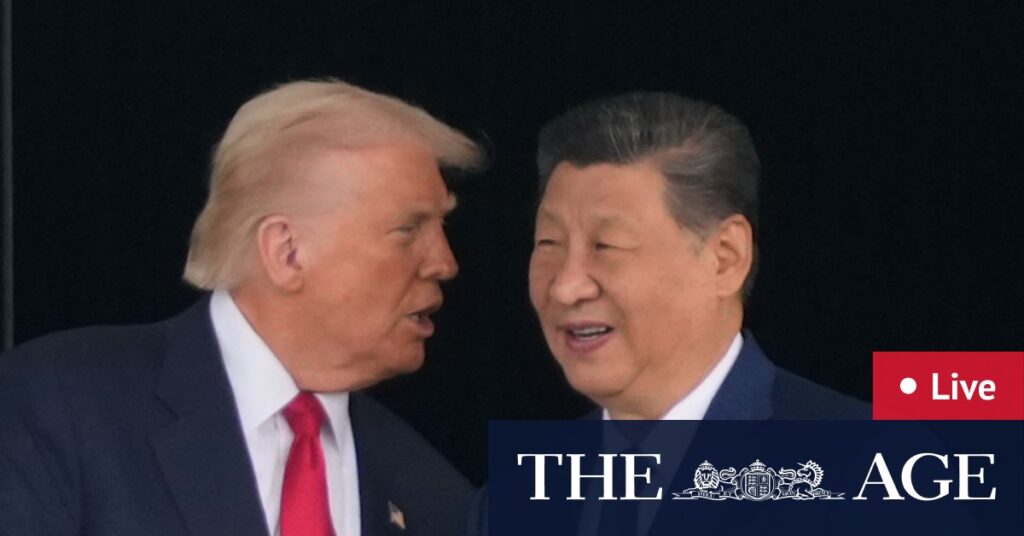
In a series of significant developments, Prince Andrew is set to lose his princely title and vacate his royal residence following revelations about his association with convicted sex offender Jeffrey Epstein. Meanwhile, Hamas has urged the Australian government to reconsider its classification as a terrorist organization, coinciding with the group’s recent ceasefire agreement with Israel. Domestically, Australian political discourse is heating up as opposition backbenchers express discontent with Labor’s energy policies.
Prince Andrew’s Royal Demotion
The British monarchy is once again in the spotlight as Prince Andrew faces further repercussions from his controversial ties with Jeffrey Epstein. The decision to strip the prince of his title and evict him from the Royal Lodge marks a significant shift in the royal family’s handling of the scandal. This move comes amidst growing public and media scrutiny over the prince’s past actions and associations.
Experts suggest that this decision reflects the monarchy’s attempt to distance itself from controversies that could tarnish its reputation. Royal historian Dr. Sarah Thompson noted, “The monarchy is keen to maintain its public image, and decisive actions like this are necessary to uphold the institution’s integrity.”
Hamas Challenges Australia’s Terror Listing
In an unexpected move, Hamas has filed court documents urging the Australian government to remove its designation as a terrorist organization. This request comes as the group enters a ceasefire agreement with the Israeli government led by Prime Minister Benjamin Netanyahu. The listing, which has been in place for years, has significant implications for Australia’s foreign policy and its relations in the Middle East.
Political analyst Dr. Ahmed El-Sayed commented, “The timing of this request is strategic, aligning with a period of reduced hostilities. However, the Australian government’s response will likely be influenced by its broader international alliances and domestic security concerns.”
Australian Energy Policy Sparks Division
Back home, the Australian political landscape is witnessing a growing divide over energy policies. Liberal federal MPs emerged from a lengthy meeting largely united in their desire to reduce emissions but conflicted over the commitment to a net zero target by 2050. Opposition employment spokesman Tim Wilson emphasized the lack of consensus, stating, “Nothing was agreed today. People just simply voiced their opinions and concerns.”
This internal debate highlights the broader challenges facing Australian policymakers as they balance environmental commitments with economic and industrial growth. The opposition’s stance contrasts with the government’s firm commitment to achieving net zero emissions, a cornerstone of its climate policy.
AGL’s Transition to Renewable Energy
In related news, Australian energy giant AGL is preparing for significant job cuts as it shifts its focus towards renewable energy and battery storage. The company, under pressure from climate-conscious shareholders, aims to phase out coal-fired power stations within the next decade. This transition is part of AGL’s broader strategy to invest in sustainable energy solutions and reduce its carbon footprint.
AGL spokesperson stated, “As we transition our portfolio, we need to ensure that today’s business remains productive and competitive in this changing market while we continue to invest in our business for tomorrow.”
International and Domestic Political Developments
On the international stage, U.S. President Donald Trump has called for the removal of the Senate’s filibuster rule to overcome a Democratic roadblock during a prolonged government shutdown. This move underscores the ongoing political tensions in the U.S., with significant implications for legislative processes and governance.
Domestically, Prime Minister Anthony Albanese’s brief interaction with Chinese President Xi Jinping at the APEC summit has sparked curiosity. While details of their conversation remain undisclosed, the meeting reflects ongoing diplomatic engagements between Australia and China amidst regional tensions.
As these stories unfold, they continue to shape the political and social landscape both in Australia and globally. The implications of these developments will likely resonate in policy decisions and international relations in the coming months.







